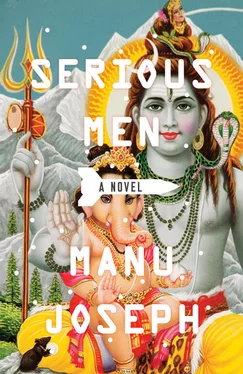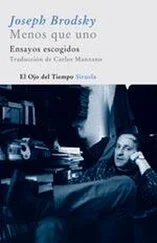Somewhere in the school, Gloria Fernandes, her throat parched at the very thought of having to teach this class, said in her singsong way, ‘Thirteen ones are thirteen.’ And the class chanted after her. She kept a cautious eye on a boy in the front row. She had a bad feeling today. ‘Thirteen twos are twenty-six,’ Gloria said. The boy lifted his hand.
‘What is it now, Adi?’
‘Why do we learn only the decimal system?’ the boy asked. ‘Why not the binary system?’
AYYAN MANI STARED at the Thought For The Day on the blackboard and was momentarily hypnotized by the power of the written word.
If ancient Indians were really the first to calculate the distance between the Earth and the Moon, why is it that they were not the first to land there? I look at the claims of old civilizations that they have done this and that with great suspicion — Neil Armstrong
Ayyan was tempted to write another invented quote. That would be risky. He usually inserted only one phoney quote every week or so. That way his subversive abuse of the Brahmins would not attract too much attention. But that morning he could not resist the temptation. He pretended to look into a piece of paper and wrote a fresh thought:
Reservations for the low castes in colleges is a very unfair system. To compensate, let us offer the Brahmins the right to be treated as animals for 3,000 years and at the end of it let’s give them a 15 per cent reservation — VallumpuriJohn
When he turned to leave, he saw Oparna Goshmaulik reading the Thought For The Day. ‘Who is Vallumpuri John?’ she asked.
Ayyan shook his head and looked up to ascribe blame.
‘Dr Acharya cannot be asking you to write the Thought For The Day,’ she said, and laughed when she tried to imagine Acharya giving instructions for the daily message. It was a very feminine laughter, heavy with affection, Ayyan thought.
‘Not the Director,’ he said, ‘Administration.’ Oparna nodded. Administration was a word everybody understood here, though nobody knew who it was or where it sat. It was an unseen being, like electricity, that made things work.
She was about to go to the corner stairs leading to the basement when Ayyan asked her, ‘Can you read Marathi?’ He showed her the paper. ‘My son,’ he said.
Oparna read with an honest curiosity that made him like her for a passing moment. Her lips silently mumbled some difficult words. Her long earrings, with a small blue globe suspended in each, trembled slightly. And he chose to see nothing more. He did not look at her proud breasts or how the wind was making her thin purple top stick to her flat stomach.
‘I can’t believe this. I didn’t know your boy was a genius,’ she said. ‘Won’t you bring him here?’
At the end of the third-floor corridor, just before the fateful door called Director, was another door. It said ‘Deputy Director’. Ayyan knocked twice and opened it. Jana Nambodri, who was in a huddle with five other radio astronomers, looked up with a grimace on his face. It seemed as if they were having a shadowy palm-on-the-candle kind of conference. Ayyan withdrew with an apology, but Nambodri’s face swiftly changed into a warm genial emptiness.
‘It’s all right, come in,’ he said.
Ayyan showed him the paper. It was put at the centre of Nambodri’s table and since only one of the astronomers could read Marathi, he read the news item aloud. Murmurs of surprise followed. They looked at Ayyan with smiles and mild astonishment. But, clearly, these men were nervous and distracted. Something was about to happen, Ayyan knew.
‘Isn’t this the same boy who asks his teachers why nothing travels faster than light?’ Nambodri asked.
‘He does?’ someone asked in disbelief.
‘Get him here,’ Nambodri said, ‘Let’s have a look at him.’ And that was it.
Ayyan went to his corner seat in the anteroom. In the morning odours of old cushion and detergent, a faint haunting smell that usually reminded him of old sorrows, he switched on the various machines around him. He wondered what Nambodri and his men were up to. There was a sense of purpose on their faces. They had done something and were preparing for the consequences. The war against Acharya might have begun. The evangelists of alien signals against a dictator who believed that truth was usually not so dramatic.
Arvind Acharya bumbled down the interminable corridor, suddenly reminded of his daughter in the days after she was born. He would sit at the edge of her mother’s bed and stare into the crib. Some days, he would imagine the world through her eyes and he would feel in his heart how long an hour actually was. As a proportion to the fragment of life his daughter had seen, an hour was a vast sprawling place. What appeared to be an hour to him, he calculated then, must have been one thousand five hundred adult hours to her. Time stretched or contracted, depending on who was keeping it. It was a strange enchanting force. In a way, it did not exist unless it was comprehended. And that to him was the key to the Time problem. Time was clearly woven into another force, the force of perception. And perception was the virtue of life alone. So he wondered if life was a fundamental element of the universe like Time itself. This line of thought had many holes, but he enjoyed it. He tried to imagine how a microscopic organism would perceive time. If its lifetime were a second, it would perceive the instant in a very different way from humans. It would live through its life feeling the sheer expanse of the moment, probably even getting bored sometimes.
He realized he was distracted by something, but he did not know what it was. It was a sound, a meek ugly voice that had none of the beauty of the thoughts it sought to abolish.
‘Sir,’ he heard someone say.
Acharya looked around and he realized he was at his door and a dark man with bright eyes and thick black hair neatly combed sideways was standing there with a newspaper and speaking in the tongue of the defeated landless slaves from another time.
‘My son has appeared in the paper, Sir,’ Ayyan said in Tamil.
Acharya’s mind slowly emerged from the mist and began to understand what was being said. He grabbed the paper from Ayyan.
‘It’s in Marathi, Sir’ Ayyan said.
‘I can read Marathi,’ Acharya mumbled, and he read. He looked puzzled and asked, ‘Your son?’
Ayyan nodded.
‘Brilliant,’ Acharya said, ‘Why haven’t the English papers written about this?’ The giant read the story again. ‘I didn’t know there was a Department of Science Education in Switzerland.’
‘There is, Sir.’
‘Bring him here on Monday.’
‘OK, Sir.’
‘Take good care of him. Don’t ask him to become an engineer or some rubbish like that. Keep your relatives miles away from him. Do you understand?’
‘I understand.’
‘Let him be. Give him books, a lot of books. You can take anything you want from my shelf. And don’t just give him science books. Give him comics, too. If you need anything you let me know. And don’t forget, give him a lot of comics.’
A PHONE RANG on Ayyan’s desk. It was Acharya on the line. He wanted a print-out of an email. This was a routine instruction. Acharya preferred to read letters the old-fashioned way and had given Ayyan his email password — Lavanya 123. The dedication of passwords was the new fellowship of marriage. To each other, couples had become furtive asterisks. Nothing else had changed about marriages of course.
He printed the email of a man called Richard Smoot. In the subject line was the cryptic message — Qb3. At the start of the correspondence between the two, Ayyan did not understand the messages in the subject lines which carried codes like Nf3, a6 or something similar. Then he realized that when Smoot had sent his first mail enquiring about the possibility of Acharya delivering a lecture in New York, he had written e4 in the subject slot — the notation of a chess opening. It was customary, Ayyan eventually learnt, for some eggheads to mark the beginning of a dialogue, e4. Acharya, when he replied to the letter seeking further information about the lecture invitation, wrote e5 in the subject slot. Apparently, e5 was black’s traditional response to white’s e4. Smoot responded with the profiles of other speakers who had accepted the invitation, marking the subject as Nf3. Smoot’s knight was now attacking Acharya’s pawn. Acharya responded with Nf6 in the subject line. And now, the two insane men were not only in the middle of a long correspondence but also a fully fledged chess match.
Читать дальше












